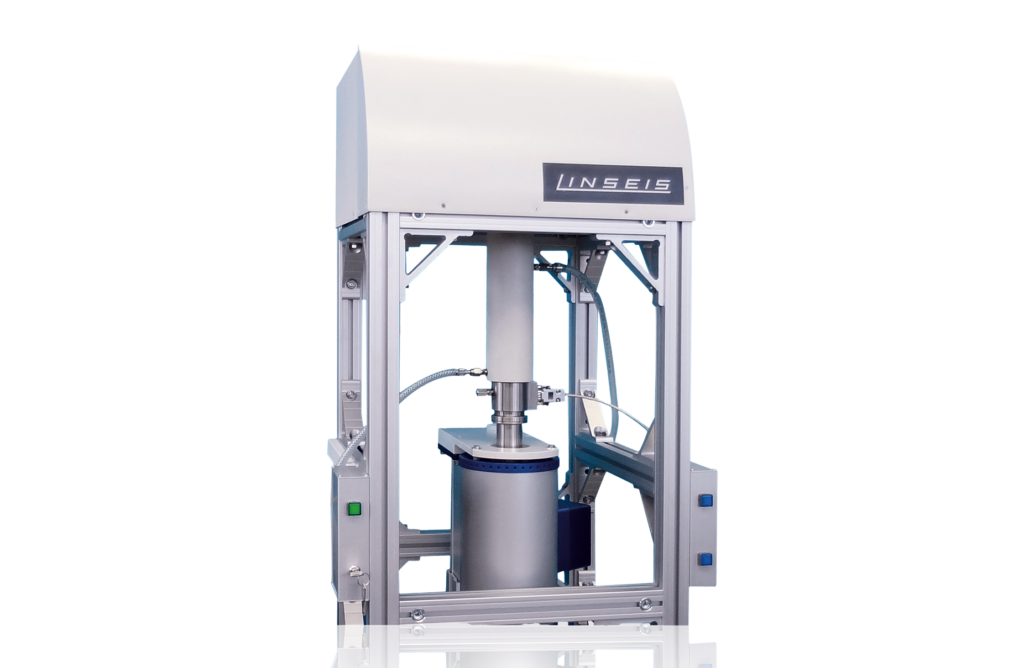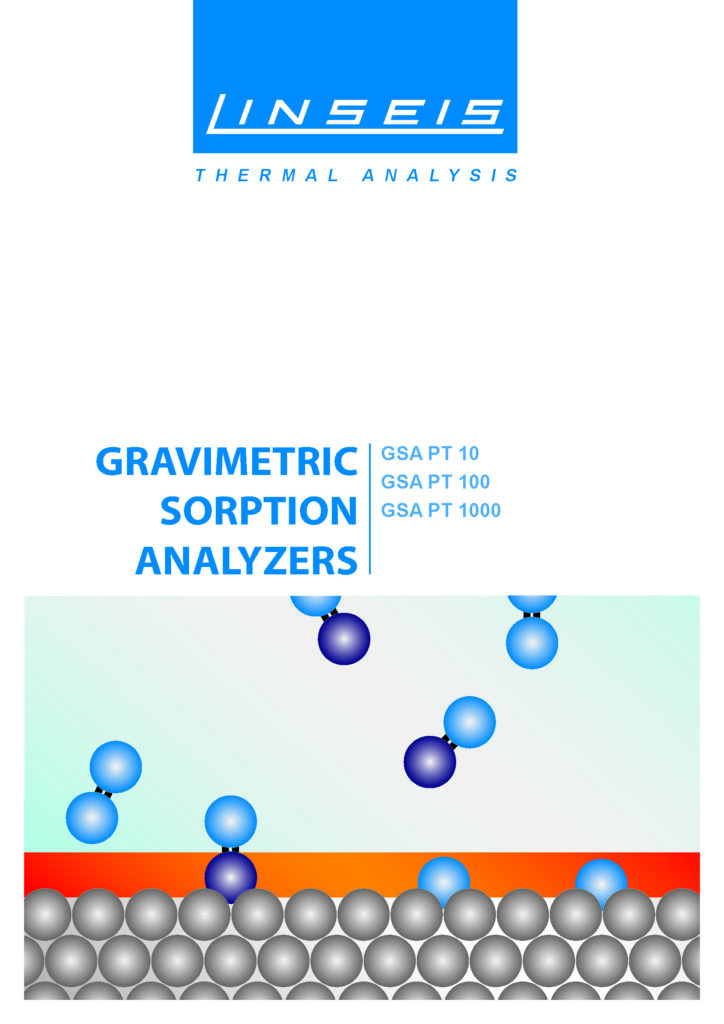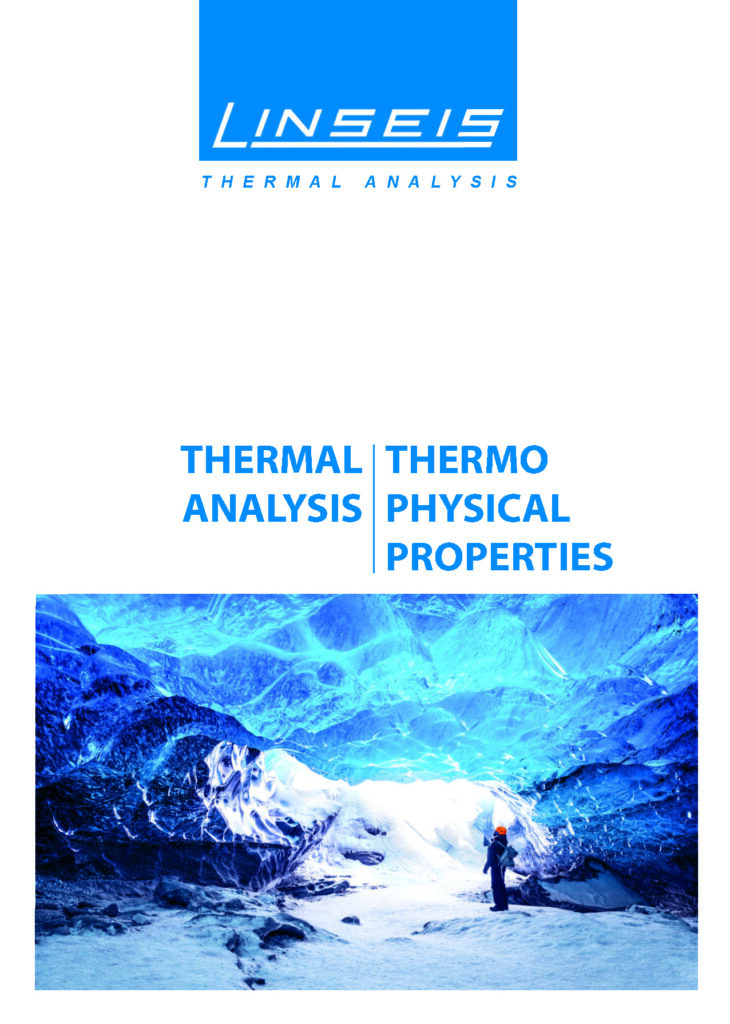Description
To the point
Linseis offers a wide range of measuring devices for gravimetric sorption analysis.
Our integrated solutions offer the possibility of independent control of pressure, temperature and gas dosing by means of supplied software.
The heart of the Linseis GSA PT 100 series is our unique magnetic suspension balance, which is characterized by a reaction chamber for very aggressive gases, as the weighing chamber is decoupled in this variant.
A large selection of reactors is available in a temperature range from
-170 °C to 1800 °C and a pressure range from ultra-high vacuum to 300 bar.
The system can optionally be equipped with a gas and/or steam control.
A special water vapor generator for infinitely variable humidity control between 0-100 % is also available.
If desired, the system can also be equipped with gas analyzers for EGA (Evolved Gas Analysis).
With the Linseis GSA PT 100, sorption processes, diffusion processes, surface tensions and sample densities can be easily measured.
It is also suitable for investigating chemical reactions and production processes such as corrosion, decomposition and combustion, which can be perfectly simulated in the system.
Unique features
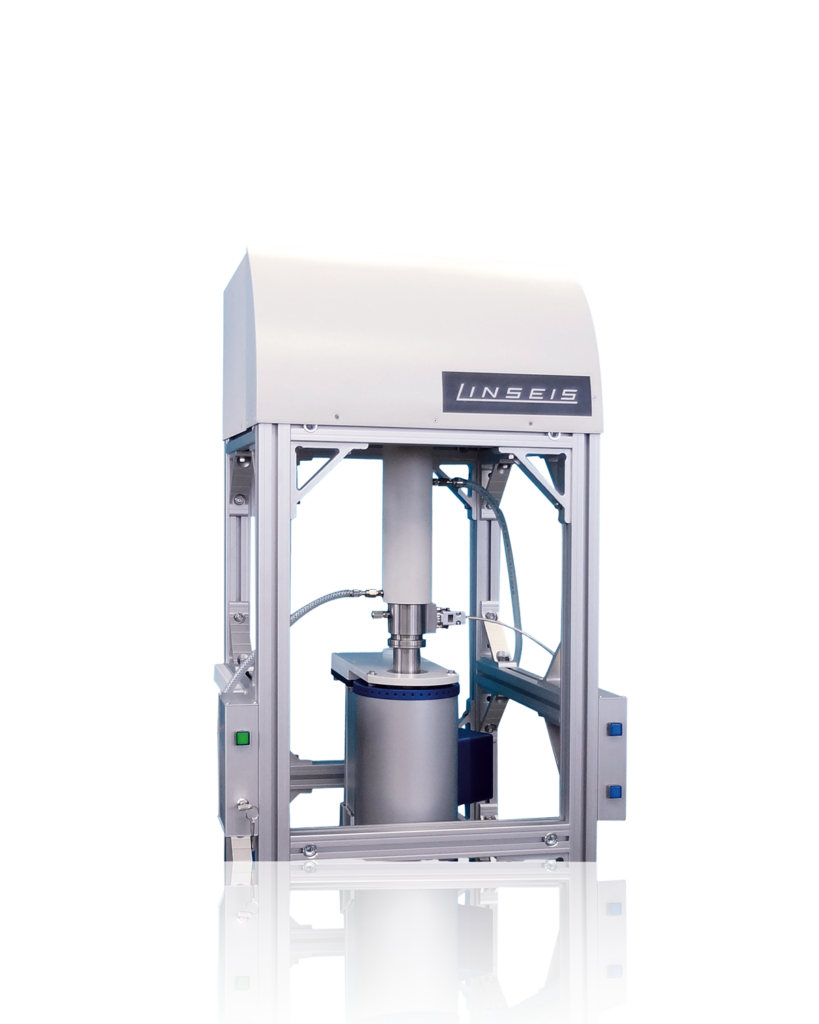
Wide temperature range: measurements from -170°C to 1800°C.
High pressure capacity: Pressure range from
Ultra-high vacuum up to 300 bar.
Magnetic levitation balance: Enables measurements in very
aggressive gases through decoupled weighing chamber.
Versatile gas and vapor dosing: Optional
Water vapor generators and gas analysis systems.
Wide range of applications: Sorption processes, diffusion processes,
chemical reactions such as corrosion, decomposition and combustion.
Questions? We're just a call away!
+1 (609) 223 2070
+49 (0) 9287/880 0
Our service is available Monday to
Thursday from 8 am to 4 pm
and Friday from 8 am to 12 pm.
We are here for you!
Specifications
Hard Facts
MODEL | GSA PT 100* |
|---|---|
| Temperature range: | -170°C up to 1250/1400/1600/1800°C |
| Pressure range: | max. 150 bar (different versions), 300 bar on request |
| TGA: | |
| Max. Sample volume: | 2/15g (more on request) |
| Resolution: | 0.1 μg |
| DSC: | |
| DSC Resolution: | 0.3/0.4/1 μW |
| DSC Sensors: | E, K, S, C |
| Options: | Gas mixing system (MFC's) |
| Atmospheres: | inert, oxidizing, red, vac |
| *Specifications depend on the configurations | |
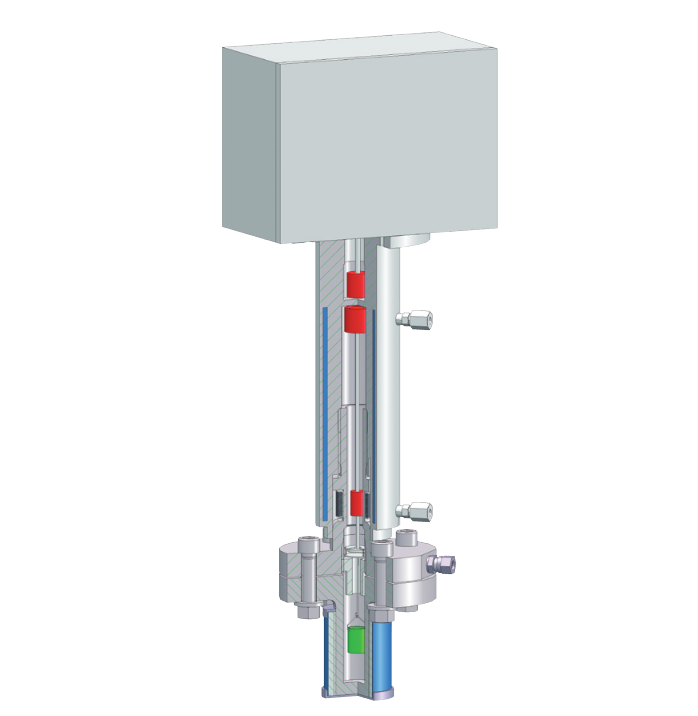
Software
Making values visible and comparable
The powerful LINSEIS thermal analysis software, which is based on Microsoft® Windows®, performs the most important function in the preparation, execution and evaluation of thermoanalytical experiments, in addition to the hardware used.
With this software package, Linseis offers a comprehensive solution for programming all device-specific settings and control functions, as well as for data storage and evaluation.
The package was developed by our in-house software specialists and application experts and has been tried and tested over many years.
TG properties
- Percentage (%) and absolute (mg/ug) change in mass
- Evaluation of the mass loss
- Residual mass determination
- 1st and
2nd derivative (peak temperature of the mass change)
General functions
- Real-time color display
- Automatic and manual scaling
- Display of the axes freely selectable (e.g. temperature
e.g. temperature (x-axis) against delta L (y-axis)) - Mathematical calculations (e.g. first and second derivatives)
- Saving complete evaluations
- Multitasking function
- Multi-user function
- Zoom function for curve sections
- Any number of curves can be loaded on top of each other for comparison
- Online Help Menu
- Free labeling
- EXCEL® and ASCII export of measurement data
- Data smoothing
- Zero curves are offset
- Cursor function
- Statistical curve evaluation (mean value curve with confidence interval)
- Tabular printout of the data and expansion coefficients
- Calculation of Alpha Phys, Alpha Tech, relative expansion L/L0
- Curve arithmetic, addition, subtraction, multiplication
Applications
Application example: Hydrogen adsorption of titanium at 700°C
The following figure shows the adsorption isotherm of hydrogen in titanium.
A titanium sample was heated to 700 °C in inert atmosphere. After reaching the target temperature the atmosphere was removed and replaced by hydrogen at different pressure levels. Depending on the used pressure range, the mass increase shows a saturation of hydrogen sorption at around 0,5 bar.

Well informed
